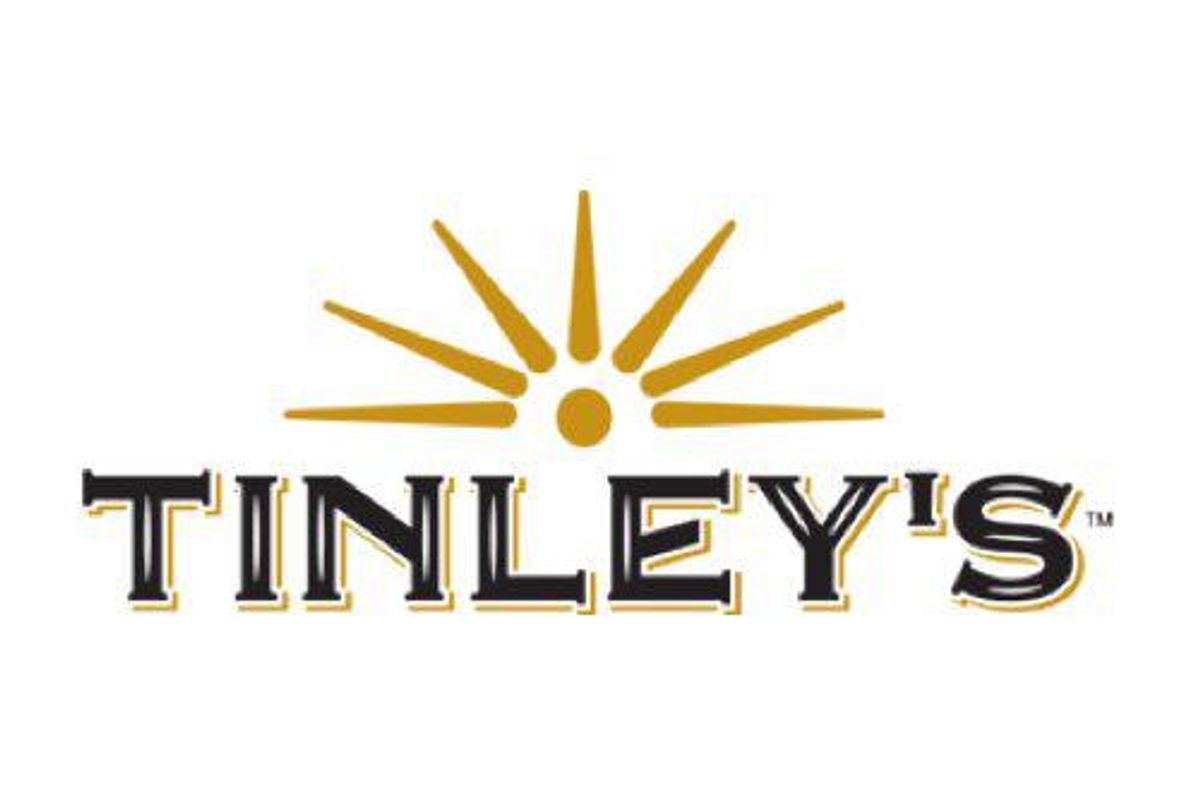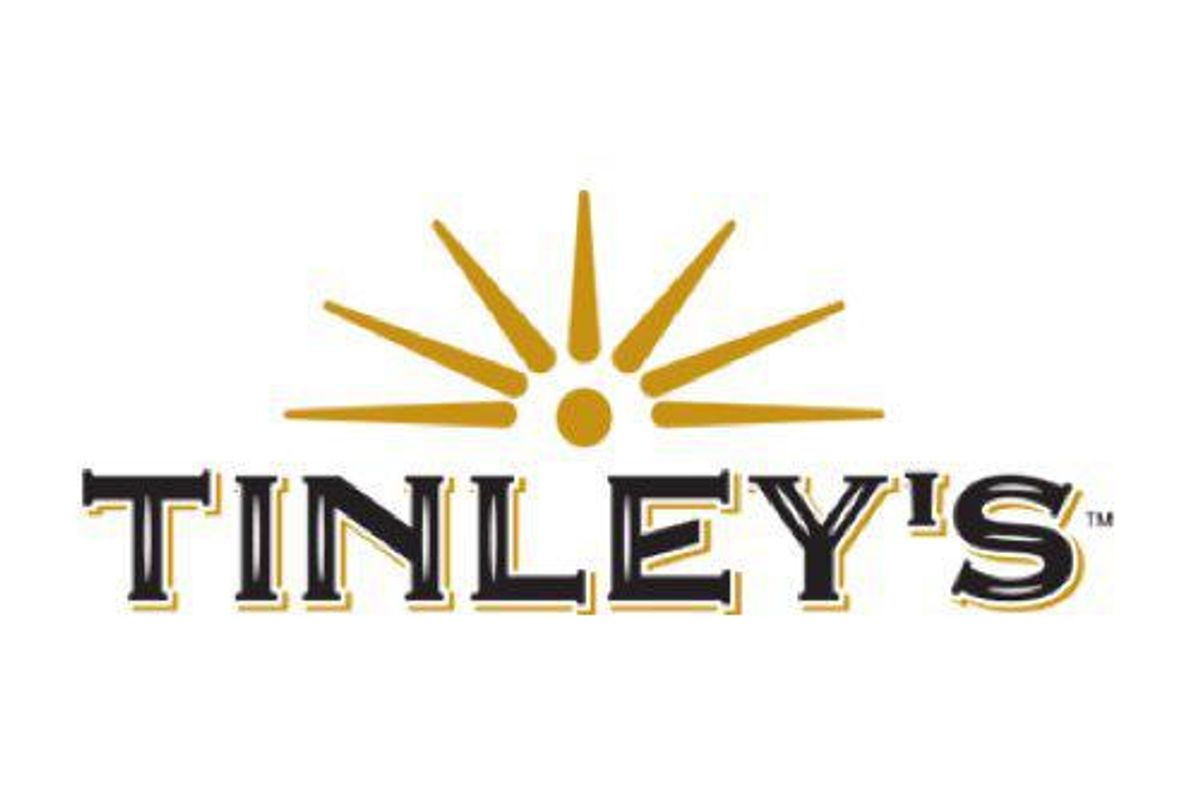
The Tinley Beverage Company Inc. (CSE:TNY; OTC:TNYBF) ("Tinley's" or the "Company") is pleased to provide corporate updates to coincide with the release today of the Company's condensed interim consolidated financial statements and management's discussion and analysis thereon for the three and nine months ended September 30, 2021, which are accessible under the Company's profile on SEDAR at www.sedar.com .
Third Quarter 2021 Financial Highlights
The following information compares certain financial results of the Company for the three months ended September 30, 2021 against the same period in 2020:
- Sales of $198,165 in 2021, compared to $34,628 in 2020, representing an increase of 472%;
- Gross margin profit of $28,234 in 2021, compared to a gross margin loss of $65,795 in 2020;
- Comprehensive loss of $2,021,029 in 2021, compared to comprehensive loss or $2,224,034 in 2020, representing an improvement, or reduction in loss of $203,005; and
- The comprehensive loss amount included non-cash share-based payments of $207,056, compared to $236,607 in 2020.
Management Statement: Review Refocus and Redirect for Revenue and Value Creation
"The Company has undergone significant changes in the final weeks of Q3 2021, with the resignation of our CEO and appointment of a new CFO," said Ted Zittell, Rick Gillis, and Doug Fulton, members of the Office of the CEO said in a joint statement issued to coincide with the Q3 2021 results released today. The statement continues: "Executive leadership, in close collaboration with the board and management, have been actively engaged in reviewing operations and client opportunities. We are working to provide clear direction, enhanced planning, and fresh focus on assets, systems, and resources. Management is committed to ensure we remain in continuous supply of Tinley's™ brand products in California. The Company is actively pursuing listings, production and launch of Tinleys™ infused products in Canada, and we are focused on high-volume and category-expanding brands for Lakewood's contract manufacturing operations at our Long Beach facility. We are strategically investing in high-demand and anticipated high-return capabilities and resources for our California operations to meet an expanded range of current and new contract manufacturing client product requirements. All efforts are focused on growing revenue and driving operating efficiencies. The Office of the CEO and the board will work to provide timely updates on progress though the month of December 2021 and throughout the year ahead."
The Company will conduct an online tour of its Long Beach facility, followed by a moderated online Q&A session with ‘Co-CEO's' Rick Gillis, Doug Fulton and Ted Zittell, on Wednesday December 1, 2021 at 10am PST/1:00pm EST for approximately one hour. To join the session, go to www.instagram.com/drinktinleys and see our "Live Story".
Operations Update
Long Beach Facility Distribution Licence
As previously announced, Lakewood Libations, Inc. ("Lakewood") received its provisional Cannabis Distribution licence issued by the Department of Cannabis Control ("DCC") of the State of California, which licence will become operational following final inspections and sign-off of permits by the City of Long Beach ("City"). Also as previously announced, the Company has entered into a purchase agreement to acquire all of the equity interests in Lakewood, the closing of which is subject to certain standard conditions precedent including applicable regulatory approvals.
As of November 26, 2021, the City has completed final permit inspections relating to Lakewood's distribution licence applications. The issuance of the business licence and permit to occupy and operate in the state-licensed distribution space is now expected in or around the second week of December 2021. As soon as possible following activation of the business licence by the City, Lakewood plans to begin transferring newly manufactured own-brand and client contract manufactured product batches from the adjacent licensed manufacturing space to the licensed distribution area to accelerate sampling and state testing, and to improve time frames for fulfillment to licensed retailers and home delivery channels.
Client Production at Tinley's Long Beach Facility
The Company has planned contract manufacturing production at its Lakewood facility in Long Beach, CA through the end of November and into December, which is expected to fulfill service requests for both new and repeat client-brand products. The Company's Q4 revenue is anticipated to include fees from new and previously signed client agreements, as well as initial client fees to be paid in connection with service requests from contract manufacturing clients scheduled to be completed in Q1 2022.
Tinley's Own Brand Production at Tinley's Long Beach Facility
Following the lack of supply of the Company's products at certain dispensaries due to supply chain and distribution delays, the Company has taken steps to address these issues and new production runs of Tinley's™ '27 and Tinley's™ Tonics products are scheduled for December 2021 and January 2022 to meet current and forecast demand. The Company is working with Hard Car Distribution to manage timely delivery to licensed dispensaries and the home delivery channels, as well as to collaborate on enhanced inventory and sales reporting.
Tinley's Long Beach Facility Enhancements to Potentially Unlock Revenue and Efficiency
In addition to the previously announced project to engineer and install an enhanced mini-bottle line to increase efficiency, versatility and capacity around the high-demand mini bottle format, the Company is currently working with third-party specialist resources to plan and implement critical paths for additional capabilities expected to come online in Q1 and Q2 2022. These include additional micro and yeast kill steps, and inert gas drip fill options, planned in response to growing demand for these capabilities from both current and new contract manufacturing clients. Client and own-brand production activity is timed around facility capability enhancements and equipment installations and upgrades, to run concurrently as possible. The Company expects that the previously announced closed-loop non-alcoholic beer intake and infusion process, commissioning of the can line, and commercial calibration of the tunnel pasteurizer for high-demand container formats will be completed and available for client production scheduling on or around mid-December. All upgrades, new equipment and new processes are designed for optimal integration into the facility's existing batching, holding, filling and post-fill secondary packaging lines and palletizing functions.
Beckett's
The Company is actively reviewing strategic opportunities to realize increased value from Beckett's inventory and assets in both Canada and the US without capital investment.
Canadian Infused Tinleys™ : Path to Production and Sales
The Company, through its sales agent and with the support of its two licensed Canadian contract manufacturers, delivered a preliminary submission for Tinleys™ infused products to the Ontario Cannabis Store ("OCS") and was invited to make a final submission for the scheduled April 2022 product release which was delivered on November 23, 2021. The OCS has indicated that it is currently considering approval of the Company's products, and that approved products will be announced in mid-December 2021. The Company's products may be available for purchase in the OSC in April 2022. There can be no assurance that the OSC will accept the Company's products for resale.
On November 26, 2021, the Company presented a formal submission to the cannabis drinks buyer at the Alberta Gaming and Liquor Commission ("AGLC"). Additionally, the Company is working with its sales agent to schedule a presentation for submission to British Columbia Liquor Distribution Branch by mid-December 2021. General supply chain constraints and specific weather-related delays in British Columbia may delay production of Tinley's Classics until mid-January in British Columbia.
About The Tinley Beverage Company and Beckett's Tonics
The Tinley Beverage Company Inc. (CSE:TNY; OTC:TNYBF) develops and has licensed the production through its Long Beach, CA state-licensed manufacturing facility terpene and cannabis-infused non-alcoholic Tinley's™ '27 and Tinley's™ Classics products which are distributed to licensed dispensaries and home delivery channels in California. Expansion of these products, adapted for manufacturing and sale in Canada, is currently underway. The Beckett's Classics™ and Beckett's ‘27™ lines of non-alcoholic, terpene-infused non-cannabis versions of these formulations are available in select mainstream food, beverage, and specialty retailers, as well as online, in the United States as well as in select grocery and specialty stores in Canada. Tinley's facility in Long Beach California contains some of the state's most versatile and technologically advanced cannabis-licensed beverage manufacturing equipment and provides manufacturing services for third-party brands in addition to producing Company-owned brands. Please visit www.drinktinley.com , and www.drinkbecketts.com Twitter and Instagram (@drinktinleys and @drinkbecketts) for recipes, product information and home delivery options.
Forward-Looking Statements
This news release contains forward-looking statements and information (collectively, "forward-looking statements") within the meaning of applicable Canadian securities laws. Forward-looking statements are statements and information that are not historical facts but instead include financial projections and estimates, statements regarding plans, goals, objectives, intentions and statements regarding the Company's expectations with respect to the future business, operations, expansion to additional jurisdictions, consumer loyalty, anticipated consumer demand, expanded consumer interest in cannabis infused beverages and overall category growth, the closing of the acquisition of Lakewood, the timing of Lakewood's business licence and permit to occupy, timing of production runs, regulatory approval by the OSC, the AGLC and the BC regulator of Tinley's infused products, revenue growth, management's expectations regarding growth, phrases containing words such as "ongoing", "estimates", "expects", or the negative thereof or any other variations thereon or comparable terminology referring to future events or results, or that events or conditions "will", "may", "could", or "should" occur or be achieved, or comparable terminology referring to future events or results. Factors that could cause actual results to differ materially from any forward-looking statement include, but are not limited to, delays in obtaining or failures to obtain required governmental, environmental, or other project approvals, political risks, uncertainties relating to the availability and costs of financing needed in the future, changes in equity markets, inflation, changes in exchange rates, fluctuations in commodity prices and delays in the development of projects. Forward-looking statements are subject to significant risks and uncertainties, and other factors that could cause actual results to differ materially from expected results. Readers should not place undue reliance on forward-looking statements. These forward-looking statements are made as of the date hereof and the Company assumes no responsibility to update them or revise them to reflect new events or circumstances other than as required by law. Products, formulations, and timelines outlined herein are subject to change at any time.
For further information, please contact:
The Tinley Beverage Company Inc.
Ted Zittell
(310) 507-9146
relations@drinktinley.com
Twitter: @drinktinleys and @drinkbecketts
Instagram: @drinktinleys and @drinkbecketts
www.drinktinley.com
CSE:TNY; OTC:TNYBF

